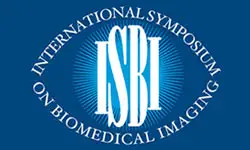Dl-Uct: A Deep Learning Framework For Ultrasound Computed Tomography
Sumukha Prasad, Mohamed Almekkawy
-
Members: FreeSPS
IEEE Members: $11.00
Non-members: $15.00Length: 00:04:12
28 Mar 2022
Ultrasound Computed Tomography (UCT) is a non-invasive, inexpensive, radiation-free medical imaging technique that is capable of resolving soft-tissue structures in the body. Waveform inversion methods frequently employed in UCT, though very successful, are computationally expensive and struggle when dealing with high contrasts between tissue types without a good initial model. This can be attributed to the large-scale optimization scheme used to solve for UCT in the presence of high contrast phantoms. In this work, we propose to leverage the promise of Deep Learning (DL) to perform high contrast UCT. The proposed deep Convolutional Neural Network (CNN) is developed using an encoder-decoder architecture which reconstructs the acoustic property distribution from the recorded ultrasound data in a fraction of a second. The DL-UCT method reconstructs highly accurate acoustic images on a synthetic dataset, which is simulated to mimic high contrast organs. This is compared against the state-of-the-art waveform inversion method. The DL-UCT model outperforms the waveform inversion technique both qualitatively and quantitatively.



